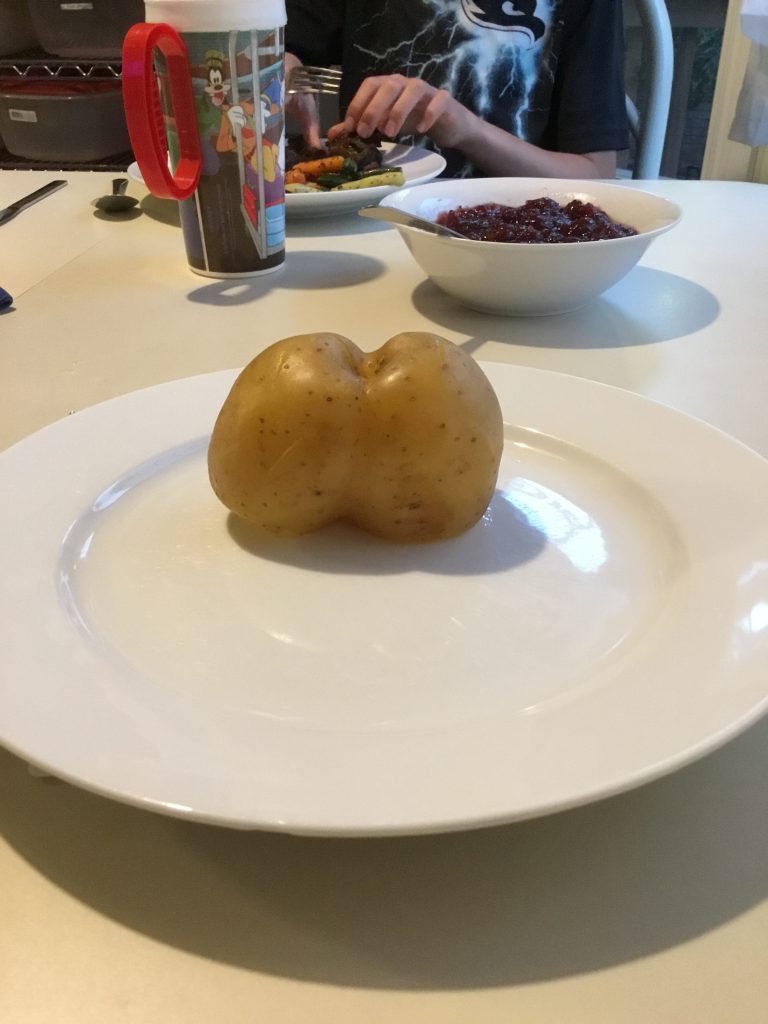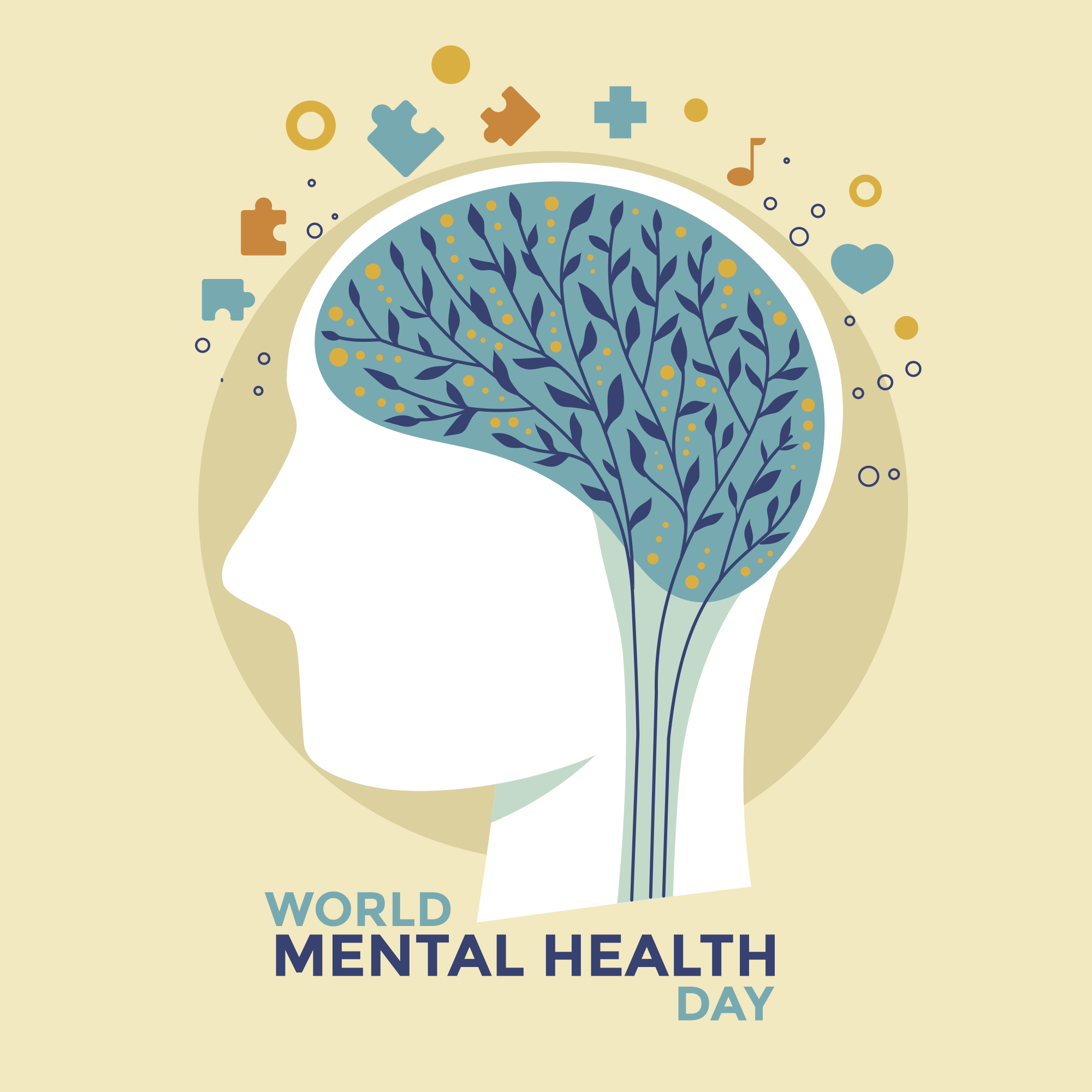Today is World Mental Health Day, and it’s a day I’ll admit I’m always conflicted about. I sometimes worry that some of the messaging on mental health and mental illness makes it sound like a meme: “An affirmation a day keeps the shrink away.” On the other hand, sometimes the answer really is simple. Like right now, I’ve struggled with about two months of high stress and poor sleep, and yet the answer to better sleep turned out to be stretching at night before bed and taking some breathers during the day, ideally with a cup of tea, whatever flavour I fancy at that moment. In this blog post, I’ll share some of my experiences with mental health and explain how it works into my writing.
Mental Health and PTSD
There were complications with my first pregnancy that landed me in the hospital for five weeks and sent me home initially without my baby. But the end has a happy ending: my son is almost a teenager now and is probably the healthiest in our family. But my mental health journey was anything but smooth sailing.
In all honesty, sometimes all I had to hang on to was those simple tips.
I had the hallmarks of classic PTSD, though I never went for a diagnosis. I also only discovered through a course in the foundations of trauma I took earlier this year that I had tell-tale symptoms:
- a stressor (birth complications)
- intrusive symptom cluster (waking nightmares, among other symptoms)
- avoidance (I was terrified of being left alone with my baby)
- negative alterations in cognitions and mood (such as constantly blaming myself for what happened and feeling alienated from others).
The reason I didn’t go for help immediately back then was because I was scared I’d be given meds and forced to stop breastfeeding, my only true source of joy. I learned recently that there are many legitimate, drug-free therapies I could have accessed, had I only asked. (I’m good at downplaying and right out hiding symptoms in public.)
First thing I want people to know on World Mental Health Day: There are so many well-studied therapies available out there that fear of therapy shouldn’t hinder you from seeking help.
Mental Health and Writing
As I conducted research for Between Worlds, I had what I can accurately call an epiphany: once I understood the mental health effects of World War One on families of the time and came across more research on the effects of war on families in general, I realized that part of my mental illness back then most likely came through generations of families affected by war who didn’t have the resources or the cultural acceptance to seek help.
Enter Georg Schuhmacher’s and Stefan Schäfer’s storylines in Between Worlds in addition to Juliana’s, where she deals with an important loss. Between Worlds became as much a series about sorting out the stories that came before us as it did about examining mental health 100 years ago in rural Eastern Europe and today in Canada.

Mental Health Epiphany #2
I began therapy again about a month ago, and at my last appointment, my therapist talked about fixing the pattern, not the person. My perspective on life shifted 180 degrees as I acknowledged for the first time that not all of my behaviour was my fault.
But that left me with a conundrum: Who else could change that pattern but me? And if I had to change it, was it not my fault?
Yes, my mind works like this. But here’s the answer: The pattern existed before me, it existed in my lifetime, but it’s my decision how to interact with it. The pattern is not my fault and I am therefore not broken. I have simply found myself in a situation that comes with different options for reacting.
Look at it another way: Is it your fault the light turned red? Your computer froze? The power went out? Of course not. But you need to react: Stop the car or continue driving? Reboot the computer or throw it out the window? Find a flashlight or scream at your lightbulb?
The second thing I want people to know about on World Mental Health Day is that acknowledging the situation and the larger pattern at play means we can seek help without feeling like we’re something broken that needs to be fixed. We have no issues calling the plumber, electrician, or even City Hall when we have a problem. So why don’t we ask for help when our minds can’t figure out the solution to our mental health problem?
The Arts and World Mental Health Day
Sometimes, though, it is possible to help ourselves. A few weeks ago, ready to burst open from all my stress, I turned up Disturbed’s cover of The Sound of Silence, laced up my tap shoes, placed my 2’ x 4’ tap board on the floor, and banged out my frustrations for at least 15 minutes.
When I say banged, I mean banged. I was loud and it felt good. No, empowering. Especially because women aren’t stereotypically supposed to be loud. But sometimes words are inefficient or just too darn slow to let us pour out what’s going on inside. Music, dance, crafts, and visual arts can offer solace, too.
World Mental Health Day should also remind us of the importance of the arts. There is no single way to heal mental health, the same way there is no single way to heal physical health. But just like exercise moves our bodies in ways they don’t usually move, the arts access parts of our brains we don’t always use.
My Answer Was Simple, But the Road to It Was Long
It turns out the answer to my stress was to move my focus back to my body. I’m so good at living inside my head that I sometimes forget I have a body, too. Dancing, smelling essential oils (doesn’t matter what the bottle says, so long as it smells pleasant to you), drinking relaxing teas (again, ignore the labels and go with what tastes and smells good). Also stretching before bed.
By paying attention to myself, taking small breaks whenever needed, and finding my way back into my body, I began to calm down. None of this was a complicated routine: I just learned that I needed to draw my awareness out of my head and into my body. My body told me what it needed, and I listened.
And yes, sometimes affirmations do actually help.
Mental health is in some respects like physical health: it takes a lot of simple, little steps to maintain it. But like recuperating from physical illness, the same processes don’t work for everyone. You may even need to try a few therapists before you find one you connect with. But if you’re experiencing mental illness of any kind, find a trusted professional to help you through your illness’s complexity and show you simple steps that will slowly help you find your new normal. It can be done.
And my final thought. When the world is getting you down and your mental health needs a quick pick-me-up, eat a potato that looks like butt cheeks.



